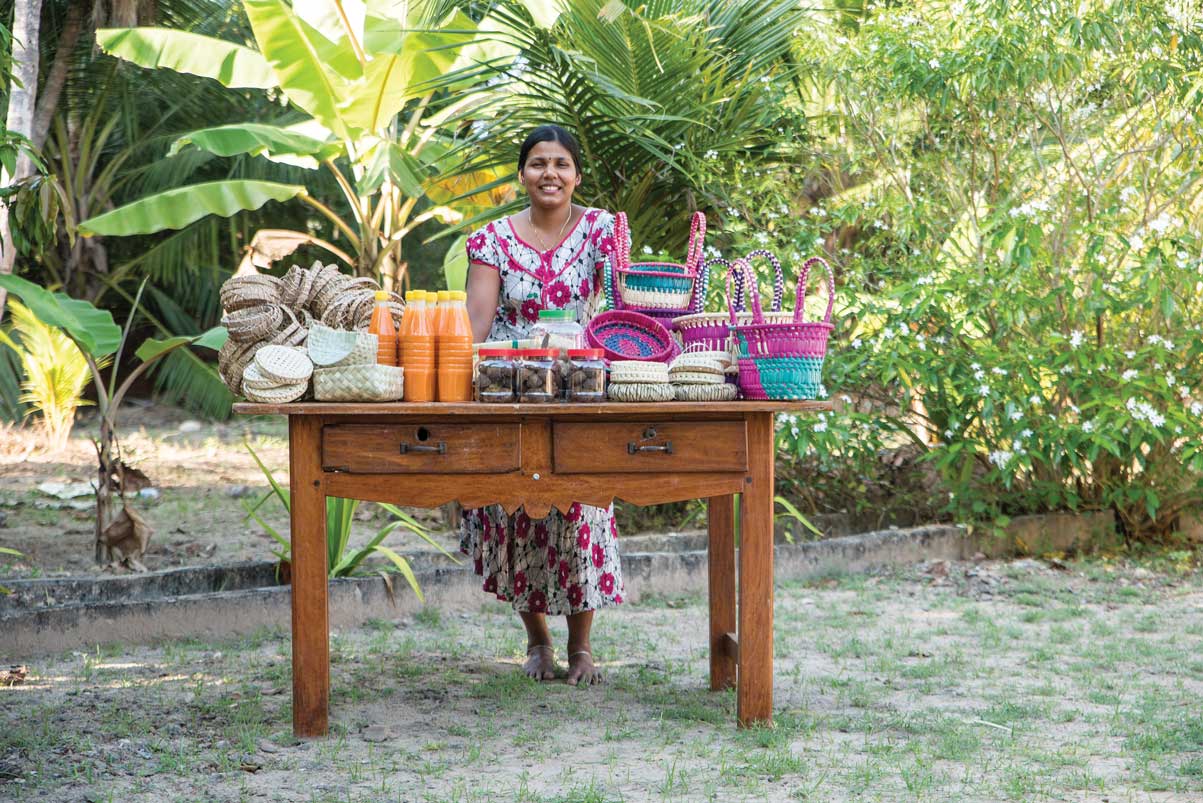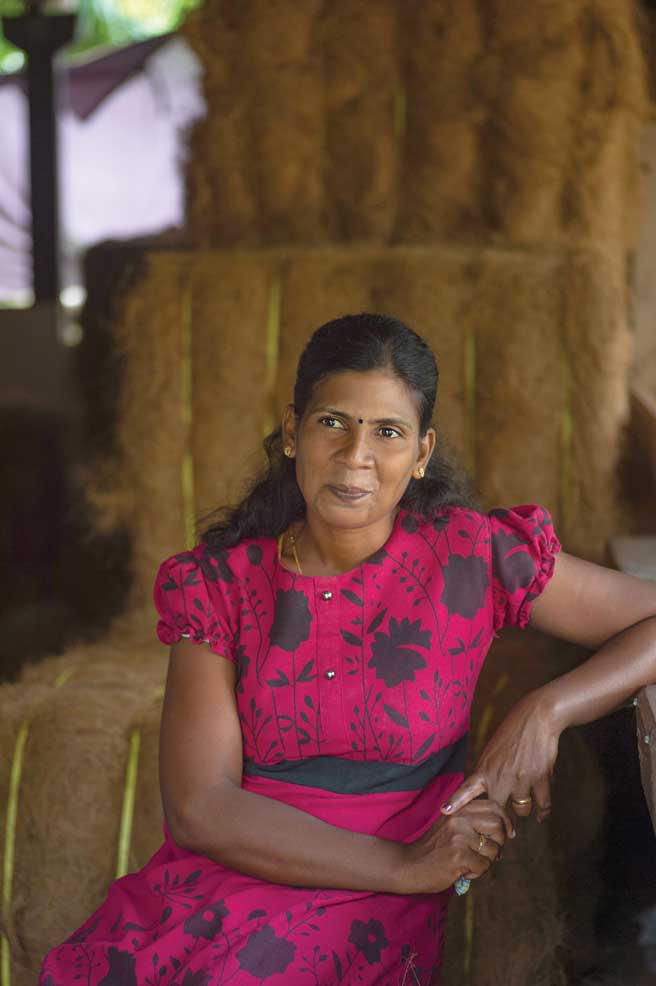EMERGING ENTREPRENEURS
EMPOWERED WOMEN EMPOWER WOMEN
Emerging entrepreneurs Amirthalingam Ranjana and Sharminy Thiyaharan
 Q: What was the beginning of your entrepreneurial journey?
Q: What was the beginning of your entrepreneurial journey?
Ranjana: I grew up wanting a government job because it provides financial stability; but I couldn’t complete my Advanced Levels because of the war and was given in marriage right after. For my parents, the decision was more about security than anything else. However, my hopes for the future took a sharp turn when my marriage ended prematurely, leaving me alone with a six year old daughter.
I needed an income. Government employment wasn’t an option as it doesn’t provide many amenities such as childcare services; my attempt at a poultry farm was unsuccessful and that’s when I joined Queens Products. The encouraging work environment, opportunities, and support provided to single mothers like myself saw me grow from storekeeper to manager.
It inspired me to start my own business – Vanni Palmyrah Company – towards empowering other women. With employees who are all female heads of households, we make Palmyrah palm food products as well as crafts like handwoven items.
Sharminy: I am an entrepreneur and eco-warrior. I gained my confidence and business acumen from my father. Growing up on a farm, helping him from an early age, and watching him work tirelessly taught me hard work and commitment. I am a teacher by profession, and my husband was running a textile business; but when it was burnt during a fire, we decided to venture into coir processing.
I have always been passionate about the environment and wanted to create eco-friendly products. This affinity for sustainability can also be attributed to my father. So that was the birth of STR Industries.
We lacked the necessary experience and expertise but I was determined. I mobilised a few local women from the community, attended an apprentice programme, obtained a bank loan and grew gradually.
Q: How would you describe the importance of education, training and professional development in this journey?
Ranjana: Women from rural areas must be provided continuous and comprehensive training and learning opportunities, to better themselves both personally and professionally. I never miss out on a training opportunity; it’s important that we learn things we don’t know. How else are we going to get better?
Sharminy: I’ve always been driven by professional growth. Women are already at a social and economic disadvantage in our society. So it’s important that we fight to make ourselves better; we must seek opportunities and build on our strengths. I didn’t have all the skills and capacities required when I started; but slowly and steadily, I expanded my horizons by working on one goal at a time. I’m very proud of this growth.
Q: How do you focus on diversity and inclusion in your business environment?
Ranjana: I am a firm believer in intersectionality. It isn’t enough to empower women to find employment. Some women are more vulnerable than others; those affected by the war, those with disabilities. We need to think of their needs and find inclusive solutions.
Promoting individuality is another aspect I focus on. My goal is to build a work environment where all women feel equally valued, and are provided opportunities to utilise their unique strengths and abilities.
 Sharminy: My passion for gender equality began during my university days. I wrote my thesis on the glorification of women in Tamil literature and compared it to the present challenges women face in the north.
Sharminy: My passion for gender equality began during my university days. I wrote my thesis on the glorification of women in Tamil literature and compared it to the present challenges women face in the north.
When I started my business, I employed both men and women; but the men refused to work for the same salary as women. I think it made them uncomfortable – a hit on their masculinity. They asked for a higher salary because they believed they’re better at physical labour. I refused to employ them as I don’t tolerate that kind of entitlement.
Q: What are your thoughts on how we can build, support and advance women entrepreneurs?
Ranjana: I do not entertain people who assume they know what is best for women. Every woman is different and nobody is less important. When we empower women business leaders, we must first listen to them to understand their stories, needs and expectations.
This acknowledgement should be the foundation for any attempt at empowerment, for such efforts to be truly valuable and sustainable. Talk to women, understand them and learn from them.
Sharminy: Many women are held back by their own families in cultures such as ours. Dependency is a major challenge for women who try to think out of the box and make a name for themselves. We are taught to rely on others; first our parents, then male siblings, then our husbands and finally, our children.
As much as support systems are important, women should be able to stand on their own feet. To achieve this, a cultural shift is imperative.
Ranjana and Sharminy are supported by the ILO Local Empowerment through Economic Development and Reconciliation (LEED+) project in its efforts towards creating decent, inclusive and sustainable jobs, and ensuring the empowerment of conflict-affected communities in the process.
Amirthalingam Ranjana
Entrepreneur
Sharminy Thiyaharan
Entrepreneur




